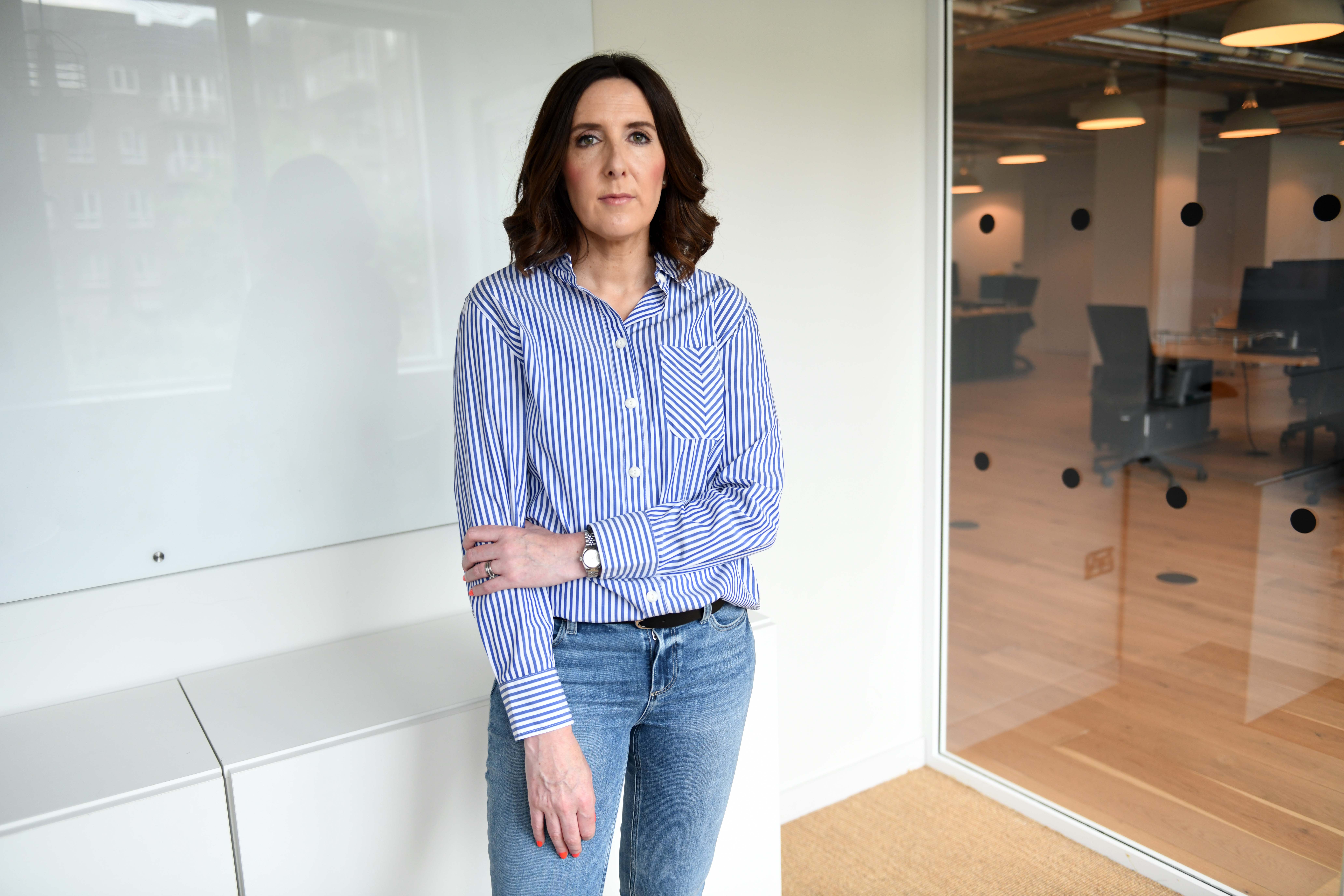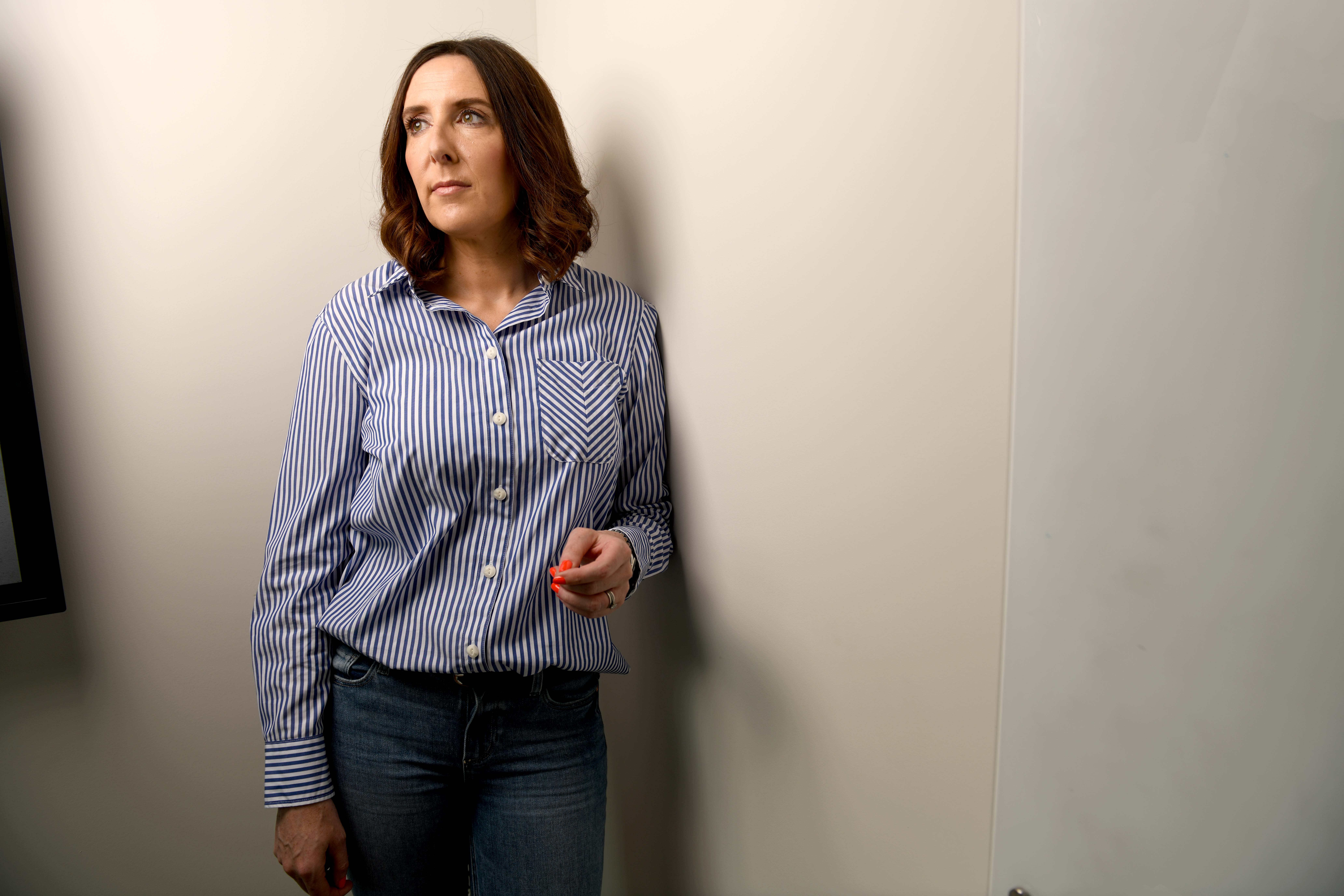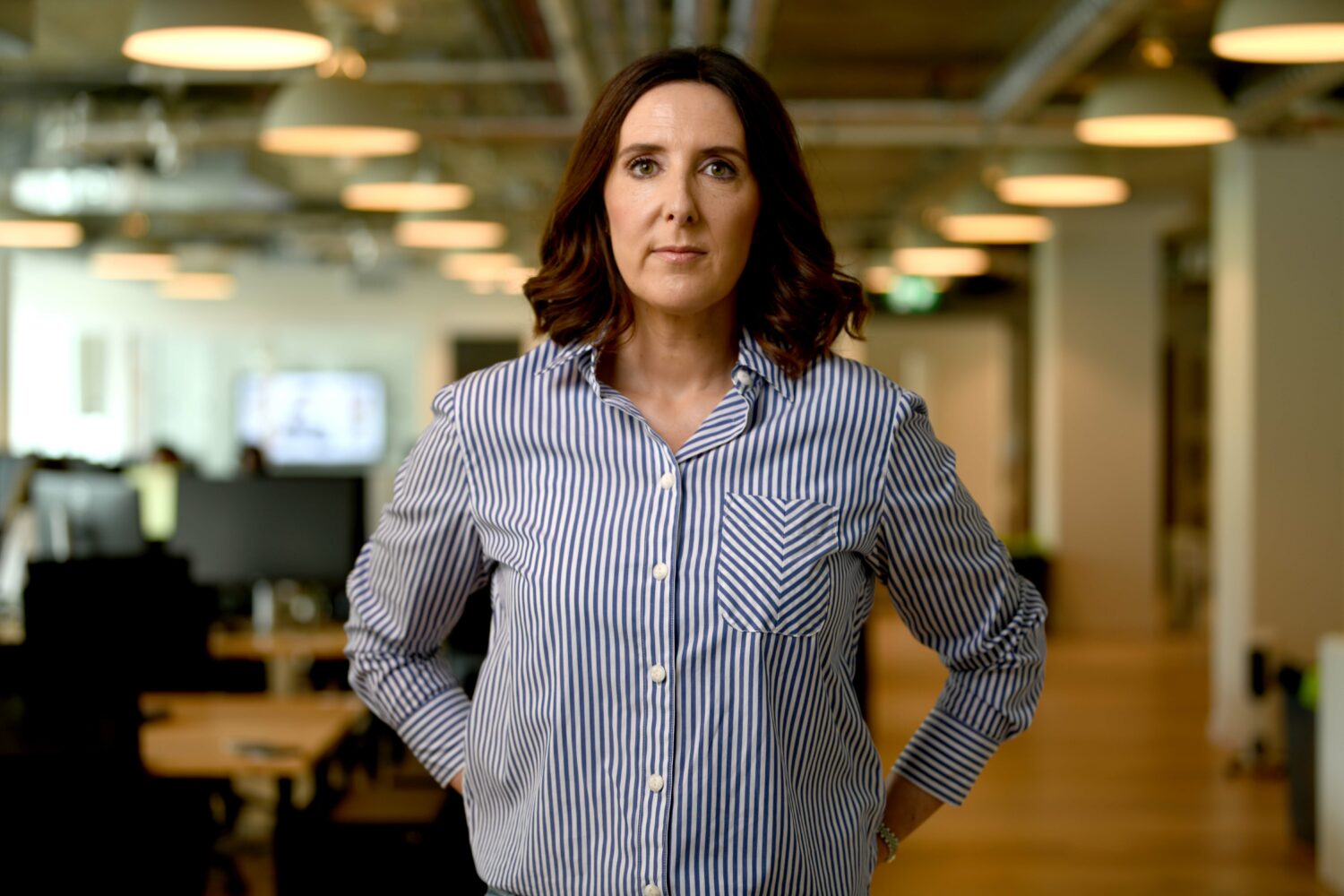“Wouldn’t it be great if there was a world where we didn’t need it,” Caroline Sherry begins. “But we absolutely do.”
The winner of the management professional category of the IMAGE PwC Businesswoman of the Year awards, Sherry begins by reflecting on the need for women-only awards in business.
She is forthright, having been the only woman in the room on too many occasions.
“There is such an absence of women, particularly at senior levels,” Sherry says. “In my day-to-day, whether I’m talking to advisors, shareholders, prospective investors, etc – typically there is a very strong male dynamic in the room. Typically I’m the only female.
“There really is such an absence of women. I think things are still extremely challenging for women to be able to have a career, maybe take time away for maternity leave, then come back, re-establish themselves. The culture of presenteeism has possibly changed post-Covid but it’s still there.”
The fallacy of work-life “balance” is something that we return to later.
As chief financial officer of Hostelworld, Sherry is one of four female CFOs of publicly listed companies in Ireland and that distinction comes with its own feeling of responsibility.
Professional and personal responsibility
Sherry stepped into the role during the height of Covid. It was a time of turmoil for the company, whose revenue stream was gridlocked by the total closure of the travel and hospitality industry.
Like many other businesses, the platform’s survival was not guaranteed and it was an opaque road ahead. From the outset, Sherry felt responsibility to her staff and to the company. On another level, she felt it to herself too, that she wouldn’t be the one to let Hostelworld go under.
“There was an additional something spurring me on and it just made me think – Covid has taken so much away from all of us, it’s denied us so much. It’s not taking this company away, we are going to survive. We’re going to get through it.”
As the pandemic dragged on through 2020, Sherry and her team set up a “cash war room” and went through every cost line item and placed it in a “kill, pause or reschedule” column.
This translated as a company-wide restructure, removing €7 million in costs from the business, raising €15 million of equity in June 2020, and negotiating a new €30 million term loan facility in February 2021 with HPS Investment Partners, a New York-headquartered capital market company.
Done at a time of intense pressure the facility had an effective minimum 9.25 per cent rate and awarded stock warrants to HPS that could be converted into 3.3 million shares or a 2.85 per cent stake, at a peppercorn price of 1 cent.
The finance was expensive but it got the company through the most difficult point in its history. It also allowed for Sherry and Gary Morrison, Hostelworld’s chief executive, to perform open heart surgery on the publicly listed business without the pressure of chasing six-month revenue targets.
For the company, this meant overhauling its technology stack, changing its commission structure, and modernising its app, as well as developing a new social media network for travellers called Solo.
For Sherry, it meant rebuilding Hostelworld’s brand and narrative to investors and establishing a new environmental, social and governance agenda whereby the company is now offsetting 100 per cent of its carbon emissions and is working towards a classification system to verify the green credentials of hostels.
And it appears to have worked. Hostelworld emerged from the pandemic as a stronger company with better technology and a new offering. It was able to capitalise on the ferocious rebound in the travel sector; its share price has almost doubled over the past 12 months, now around £1.30.
“Refinancing that debt – for me, I feel it was one of the last remaining legacies of that really difficult time.”
The day before we met, Hostelworld held its AGM where Sherry was able to announce that the company had refinanced its €30 million loan facility, something she had made a top priority over the past few months.
“Refinancing that debt – for me, I feel it was one of the last remaining legacies of that really difficult time,” she says. “So that was just great to be able to put that to one side and allow everyone to move on.”
The platform, which is listed in Dublin and London, recorded revenue of €16.9 million in 2022, down from €81 million in 2019, and it racked up close to €83 million of losses over the Covid period.
But at the AGM, Hostelworld could announce it had returned to profit and reported Ebitda of €1.3 million from revenues of €69.7 million.

Sherry, who started out with a chemistry degree from University College Cork and considered going back to college to study medicine, wasn’t someone who knew instinctively what she wanted to do with her career. She got a master’s in e-commerce and took a summer internship at Davy Stockbrokers before deciding on the accountancy route.
From there, she chose PwC as her pathway. Seeing publicly listed companies as the blue-chip standard, she moved to Ulster Bank and was there for the financial crash although at a remove from the calamity. Her last role with the bank was as a financial performance manager. From there, she moved to Glanbia where she was director of global financial planning and analysis.
“I’ve been sector-agnostic,” she says, considering the path she has scythed for her career. “I’ve always kind of thought if I get to a point where I don’t know how I can progress my career or I feel it is a bit limiting, then that’s usually the point where I think: I’ve gotten the best experience out of this that I can get and I think it’s time for me to look at something different.”
One of the attractions for Sherry to move from Glanbia to Hostelworld was the opportunity to have an external-facing role, and invert finance’s traditional backroom image. Before the pandemic, she had never been on a shareholder call, been involved with an equity raise or done a results presentation.
“It’s great to be able to kind of put yourself out there and do it,” she says now, reflecting on the firsts she’s taken on over the past three years. “We’re all so much more capable than we think we are and so much more capable than what we give ourselves credit for.“

During the interview, and perhaps because it was framed in the context of a women’s business award, which acknowledges by its existence that the playing field is not level for men and women, we come back a few times to the decisions that women and men make about their careers and where paths diverge.
For Sherry, it comes back each time to pay equity: Who is earning more when children and childcare enter the equation. A mother of two, she has lived through it, those “horrible” decision points when the question over the “financial and emotional benefit” to a woman working or not working arises.
“All too often, that’s when the kind of shift in career paths happens and we start to diverge because it just simply doesn’t make financial sense for a woman today in the workforce,” she said.
“You’re sacrificing one pocket for another.”
“This isn’t just women and it’s not just exclusively women who have children, but I think at a certain point in your career, the roads diverge.
“Why do we focus so much on the workforce and gender balance within the workforce? Because it is representation and having a company run by one cohort of individuals, it’s simply not good for business.
“Different points along the way have been challenging and it is hard sometimes to reconcile it to yourself. People talk about a balance. It’s not balanced.
“You’re sacrificing one pocket for another. And that’s hard to be fully comfortable with at all times.”
For Sherry, the question of missing out on things, of not being as present as a parent, has been a consideration at different times, but there was another element too and one which again comes back to that feeling of responsibility.
“I’m a mum of two boys,” Sherry says. “It was important, it is important to me, that they see an equal world and equal representation.”
*****

Join the IMAGE Business Club today to access an extraordinary community of like-minded women in business in Ireland. Your year-long membership includes 6 exclusive networking evenings; curated co-working days; leadership events; coaching opportunities; online tutorials; IMAGE and IMAGE Interiors magazines delivered to your door; and many more opportunities to connect with and be inspired by this community. Join today using the code CURRENCY10 and receive 10 per cent off membership, as well as a luxury welcome box. Join here.


